This is the first interdisciplinary workshop on APEC Vietnam 2027 with the participation of leading Vietnamese experts on APEC cooperation from relevant ministries, sectors and international organizations. The workshop is an opportunity to share information on major trends in the region and the world , prospects for APEC cooperation in the coming time as well as the role of Vietnam as the host in 2027.
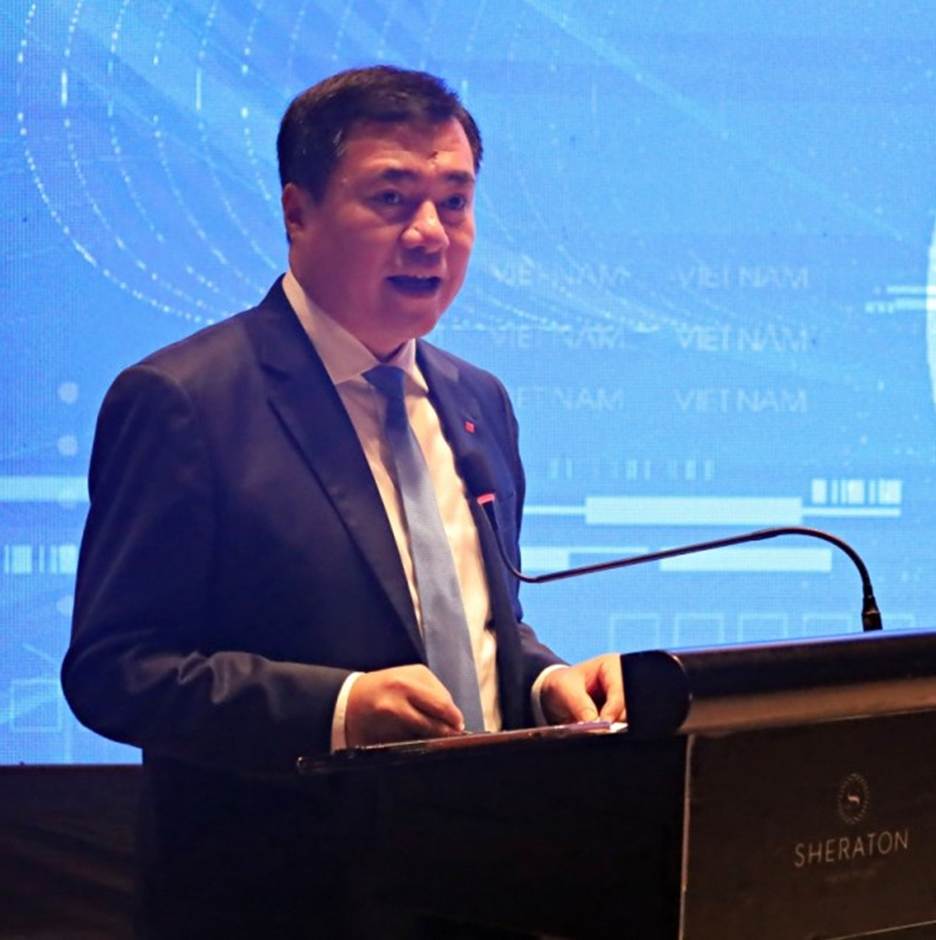
Hosting APEC 2027 is an honor for Vietnam and also an international responsibility, demonstrating Vietnam's responsibility to the international community, and demonstrating the trust and confidence of APEC members in Vietnam.
The year 2027 marks nearly 30 years since Vietnam became an APEC member. Throughout that journey, the Asia- Pacific region and the APEC Forum have always been an important priority in Vietnam's foreign policy, defense policy, and economic development policy.

The workshop "New world situation and APEC Vietnam year 2027" is the first interdisciplinary workshop on APEC year 2027.
In his opening speech, Deputy Minister of Industry and Trade Nguyen Sinh Nhat Tan - Vice Chairman of the APEC 2027 National Committee said that the Asia- Pacific region and the APEC forum have always been important priorities in Vietnam's foreign policy in general and the international economic integration process in particular. Vietnam always identifies APEC cooperation as an important driving force to facilitate trade, attract investment and improve the competitiveness of the economy. Therefore, Deputy Minister Nguyen Sinh Nhat Tan affirmed that hosting APEC 2027 is a great honor and a proud international responsibility for Vietnam. "Along with the two previous hostings of APEC in 2006 and 2017, APEC 2027 once again affirms Vietnam's strong commitment to promoting multilateralism, solidarity, international cooperation, promoting the global trade system and regional economic connectivity" - Deputy Minister Nguyen Sinh Nhat Tan said.
However, according to the Deputy Minister, in recent years the world and regional situation has been complicated and unpredictable, creating challenges for economies and the global cooperation environment; at the same time, geopolitical tensions and the decline in confidence in globalization of some countries have significantly impacted cooperation within the APEC framework. Although still playing a key role in the global economy, the latest report of the APEC Policy Research Board shows that the growth forecast for 2026 of the APEC region will only reach about 2.9% compared to 3.2% in 2025 due to increasing public debt, declining trade, and the increase of protectionist and trade defense measures.
In that context, to continue maintaining APEC's leading role in the regional and global economic integration process, APEC economies are focusing on promoting substantive cooperation and enhancing dialogue to find solutions to overcome difficulties in building transparent and predictable trade and investment frameworks, towards achieving the APEC Putrajaya Vision of an open, dynamic, resilient and peaceful APEC community by 2040.
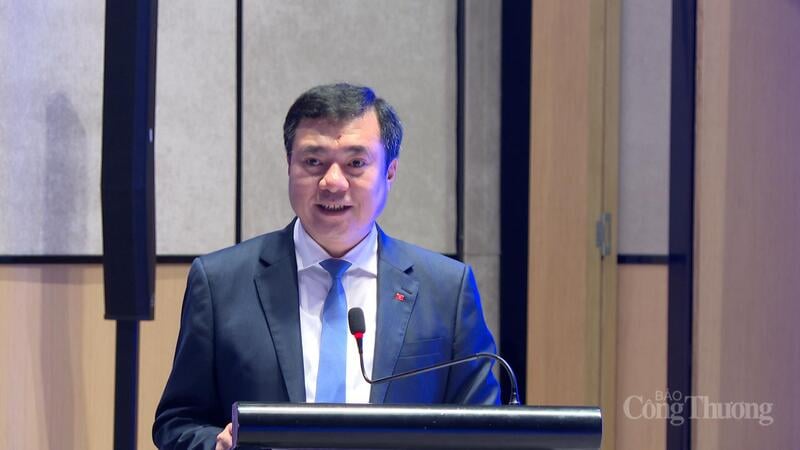
Deputy Minister of Industry and Trade Nguyen Sinh Nhat Tan said that it is necessary to carefully consider and discuss when choosing priorities and initiatives for APEC 2027 to ensure reaching a common consensus and ensuring the success of APEC 2027.
Deputy Minister Nguyen Sinh Nhat Tan also emphasized that the leaders of the Party, State and Government of Vietnam have repeatedly affirmed their determination to successfully organize APEC 2027 in both multilateral and bilateral aspects; successfully in both regional and international aspects, contributing to concretizing APEC's action programs and vision, further promoting APEC's role as a locomotive for growth and economic connectivity in the region and the world. In the process of building the theme, priorities and initiatives of APEC 2027, ministries and branches need to focus on a number of factors:
Firstly, APEC was initially established as a regional forum focusing on promoting economic and trade cooperation, operating on the main principles of cooperation, voluntariness, flexibility, and consensus. However, through a period of strong development, to adapt to the constantly changing global economic context, in addition to economic and trade cooperation, APEC's operational structure has been continuously expanded to discuss prominent issues of interest to many members. Some of the contents that APEC has focused on promoting recently include: inclusiveness in trade and investment, gender equality and women's economic empowerment, green - clean - circular economy; digital week, artificial intelligence (AI), demographics... APEC host economies have the right to propose their own priority content (for example, in 2025, Korea introduced AI and demographics into APEC cooperation for the first time and successfully negotiated to make these two initiatives an Annex approved at the APEC Summit last November). However, to ensure success in building and approving initiatives, APEC hosts need to consult early to gain support from APEC members, especially key members (US, China, Japan, Russia, Australia...).
Second, since its inception, APEC has operated on three pillars: (i) Trade and investment liberalization and facilitation; (ii) Business facilitation; (iii) Economic and technical cooperation. In addition, after completing the Bogor goals on free and open trade and investment, in 2020 APEC Leaders issued the Putrajaya Vision 2040 with three main pillars: (i) Trade and investment; (ii) Innovation and digitalization; (iii) Strong, balanced, secure, sustainable and inclusive growth. Accordingly, in 2021 APEC issued the Aotearoa Action Plan to implement Vision 2040. During the 2021-2025 period, APEC host economies will basically rely on Vision 2040 to build the theme and cooperation priorities of the year. On that basis, Vietnam needs to consider the contents stated in Putrajaya Vision 2040 to discuss and decide on the themes, priorities and initiatives of APEC Year 2027. At the same time, it is necessary to adhere to the three pillars of APEC cooperation to promote trade and investment cooperation, build capacity for developing economies and promote connectivity with the business sector through the role of the APEC Business Advisory Council (ABAC).
Third, considering the complexity due to current geopolitical tensions and different views of APEC members on bringing controversial issues into APEC cooperation, Vietnam needs to consider and discuss carefully when choosing priorities and initiatives for APEC 2027. This will help ensure a common consensus, ensure the success of our documents and initiatives, contribute to the overall success of APEC 2027, thereby helping to affirm Vietnam's position and stature in the international arena. Within the framework of the first interdisciplinary workshop on APEC Vietnam 2027, leading Vietnamese experts on APEC cooperation exchanged and discussed two main topics: Major trends in the Asia-Pacific region and prospects for APEC cooperation until 2030; Vietnam's role and contribution to APEC in the new period. The opinions shared at the Workshop will contribute significantly to supporting the Content Subcommittee and the National Secretariat 2027 in the process of building themes, priorities and initiatives for APEC Year 2027.
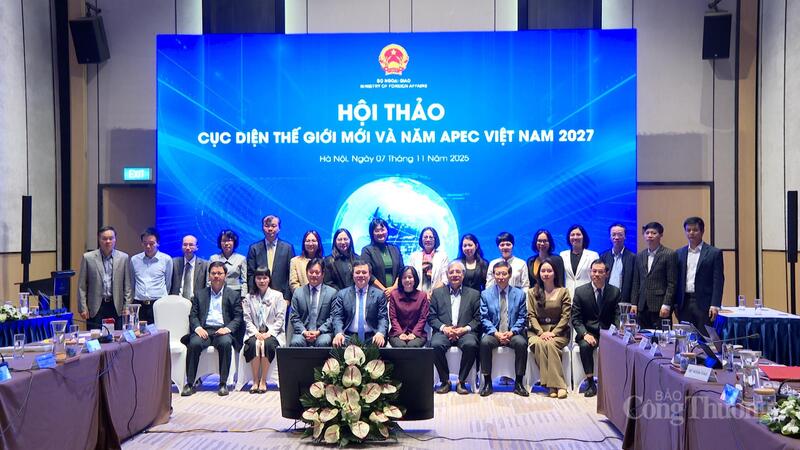
Delegates attending the workshop.
Sharing new trends in the Asia-Pacific region, Mr. Nguyen Vinh Quang - Deputy Director of the Institute of Strategy and Economic Policy, Ministry of Finance said that the world has been shifting towards trends such as: Strategic competition and restructuring of supply chains; the structure of economic agreements is increasingly complex and overlapping; population transition; climate change and green transformation; science, technology and digital transformation... In the context of many fluctuations in the region, Vietnam has succeeded in building a unique strategic position through simultaneous participation in three of the world's most important free trade agreements: Comprehensive and Progressive Agreement for Trans-Pacific Partnership (CPTPP), Vietnam - EU Free Trade Agreement (EVFTA) and Regional Comprehensive Economic Partnership Agreement (RCEP).
Currently, APEC member economies account for an overwhelming proportion of Vietnam's total foreign economic activities, specifically: The proportion of FDI capital from APEC accounts for 86.7% coming from partners: Korea, Japan, Singapore, China...; the proportion of goods exported to APEC accounts for 74.8%, main partners: the United States, China, Japan, Korea, ASEAN...; the proportion of goods imported from APEC accounts for 82.37%, main partners are China, Korea, Japan, the United States...
Mr. Nguyen Minh Cuong - former Chief Economist, Asian Development Bank (ADB) said, in the context of "new abnormality" becoming a permanent state of the world, regional cooperation forums such as APEC play a particularly important role. APEC is not only a bridge between large and small economies, but also a place to test new approaches to reconcile national interests with the common interests of the region. APEC's role is demonstrated in its ability to maintain and balance national interests that are becoming increasingly extreme with multilateral cooperation.
Mr. Nguyen Minh Cuong stated that the world is moving forward not on a predetermined path, but through continuous changes. Therefore, what is necessary is not to seek high unity in cooperation, but to reconcile national interests as well as conflicting trends. APEC and other regional mechanisms are the foundation for economies to overcome uncertainty together, turn challenges into opportunities, and move towards a more sustainable, inclusive and balanced development future.
In addition, in the second session of the workshop with the theme "Vietnam's role and contribution in APEC", delegates focused on discussing the following contents: Successful experiences in 2017 and lessons for APEC 2027; approaches in building the APEC 2027 program and Vietnam's priorities and issues of interest to countries; priority focus and initiatives that Vietnam can promote in APEC 2027./.
Source: https://moit.gov.vn/tin-tuc/ho-i-tha-o-cu-c-die-n-the-gio-i-mo-i-va-nam-apec-viet-t-nam-2027-3-yeu-to-can-chu-trong-trong-qua-trinh-xay-dung-chu-de-n.html





![[Photo] Da Nang: Hundreds of people join hands to clean up a vital tourist route after storm No. 13](https://vphoto.vietnam.vn/thumb/1200x675/vietnam/resource/IMAGE/2025/11/07/1762491638903_image-3-1353-jpg.webp)







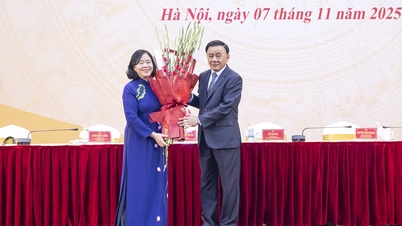

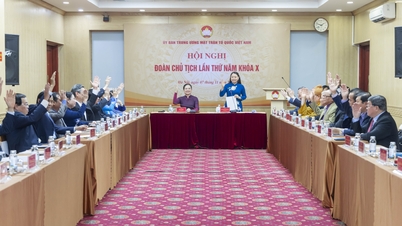





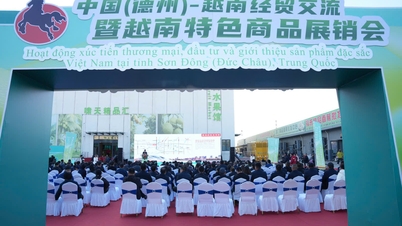

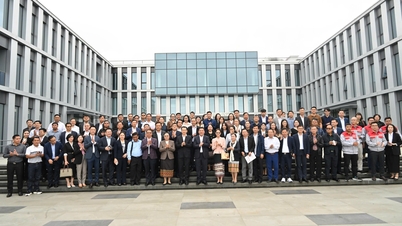






















































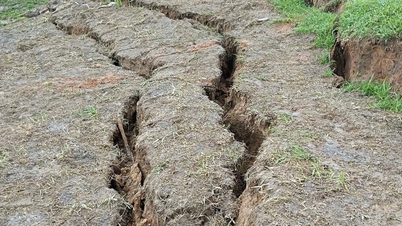

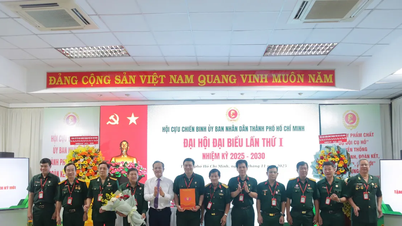
















Comment (0)